RSS & Freedom Struggle: A Glorious Chapter
Total Views |
Congress leader Rahul Gandhi displaying his ignorance as usual expressed views about RSS, Emergency and also compared RSS-sponsored schools with the madarsas saying that these schools popularly known as Saraswati Shishu Mandir are imparting terrorist and fundamental ideology to the students like the madarsas. Rahul Gandhi said this in discussion with an internationally reputed economist Kaushik Basu. We are all aware of his ‘knowledge’ about the RSS and its yeoman service. Unfortunately, such leaders get the most publicity from our media houses. The Chief Minister of one of the most ‘progressive’ states Maharashtra Uddhav Thackeray said on the floor of the state assembly that the RSS did not participate in the freedom struggle hence they do not have the right to chant “Bharat Mata ki Jai” slogan.
He forgot that his own organization was nowhere during the freedom movement and that during the 1975 emergency his father the great ‘Hinduhridaysamrat’ (?) Balasaheb Thackeray shamelessly extended support to Indira Gandhi justifying the 1975 Emergency. However, these politicians have no scruples and they have developed the knack to conveniently forget such memories. Looking back, there are such examples in abundance where the RSS was made a scapegoat by the politicians. Starting from the first Prime Minister Jawahar Lal Nehru to his great grandson Rahul Gandhi at present all the Congress leaders tried to malign the RSS using all the might they had at their disposal.
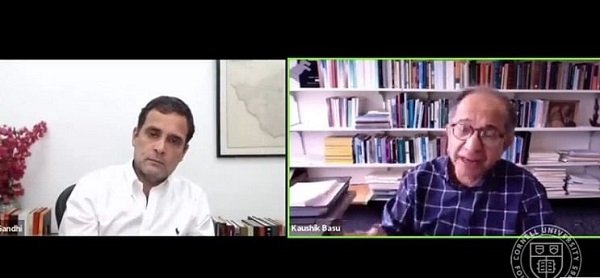
The RSS has been the most favorite ‘whipping boy’ of these so called secular, progressive but essentially multi-communal and fundamentalist parties and leaders since early days. Come election season and they start heaping the same conventional expletives at RSS. No other organization in Bharat has attracted such extreme condemnation and criticism as the RSS. Result: Those hurling abuses against the RSS lost the popular base and became irrelevant but the RSS kept growing, scaling new heights of popularity and appreciation from the people.
But this is equally true that the RSS has been the victim of slander and calumny. The detractors of RSS used every possible means to besmirch it and other organizations that drew their elixir of sustenance from the RSS and its ideology of positive Hindutva. Baseless canards, rumors, insinuations, and innuendo are used by them to malign the RSS and damage its reputation and image. Their criticism was mostly driven by the political compulsions, personal self-interests and at times sheer malice towards the RSS. The most repeated allegation these RSS detractors hurled against the RSS is about the alleged ‘non-participation’ of the Sangh in the freedom struggle. “Where was the RSS when the entire country was striving to achieve freedom?” they would ask. “Why did not the RSS participate in the 1942 Quit India movement?”, they want to know. And the Communists and Congress leaders crossing all the limits would blame RSS – the most patriotic and nationalist organization – as a ‘stooge of the British’!
There is a need to identify these detractors and understand their strategy properly. Who are they? What is their own record and credentials vis-à-vis freedom struggle? Who authorized them to level all sorts of allegations and insinuations against the RSS to tarnish its image? Who gave them the right to malign the image of the RSS by carrying out such malicious propaganda against it? Let us analyze these RSS baiters one by one. The Communists top their list for obvious reasons. The Communist party of India was founded by some Muslims and left leaning Hindus around the same time the RSS was founded. They always blamed the RSS as ‘obscurantist’, ‘conservative’, ‘chauvinistic’, ‘reactionary’ and the ‘stooge of the British’. These have been their favorite abuses. The Congress follows the Communists in attacking the RSS right from the pre-independence days. It was most unfortunate that the Congress, under whose leadership all the streams of people joined the freedom struggle, used to single out the RSS and treated it as its enemy!
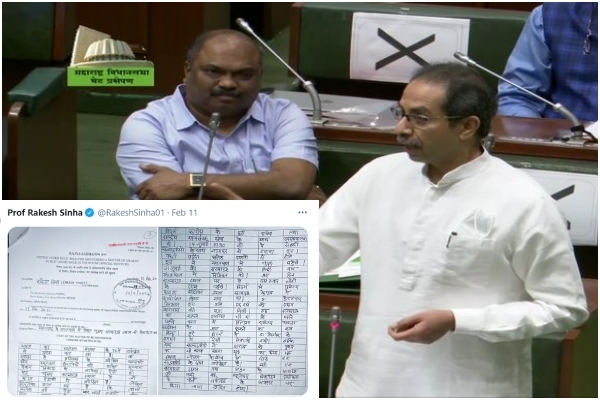
The Congress remained in power in independent Bharat for quite a long period. From 1947 to 1977 there was no party that could unseat the Congress from power. And the Congress leadership used this power and political supremacy to defame the RSS and even tried to physically eliminate it from the social landscape. Pt. Nehru announced in a public meeting in Punjab that he would ‘smash and bury the RSS under the earth’, used the ‘god-sent’ opportunity of Gandhi murder, and banned the RSS with malicious intentions. Thousands of RSS leaders and swayamsevaks were put behind the bars without rhyme or reason. It was another story that the government was to lift the ban on RSS as it did not find any solid evidence to nail the organization. The exercise was again repeated by his daughter Indira Gandhi who imposed internal Emergency in 1975 and banned the RSS arresting thousands of RSS volunteers and rival political leaders for 19 months. The RSS was the one that stood between her dictatorship and democracy and restored the democratic polity of Bharat. By virtue of that contribution of the RSS leaders like Rahul Gandhi or Uddhav Thackeray are able to hurl their favorite abuses against the same RSS using their right of freedom of expression. What an irony!
The third category of RSS traducers is a section of minorities who have believed the Congress propaganda that the RSS was their enemy and that only the Congress would save them from the RSS and its all pervading Hindutva. The fourth and maybe most influential class of persons who oppose the RSS and question its role in the national affairs is that section of the intelligentsia who is completely under the influence of western education and culture and feel ashamed of identifying them with the culture and ethos of their own motherland. Ramchandra Guha, Romila Thaper, Irfan Habib are some of the names that come under this category. What did the Communists, who very often than not raise the issue of RSS being the stooge of the British imperialist and colonial rule, do during the freedom movement? It is on record that during World War II so long as the then USSR was not-cooperating with the British, these Communists of Bharat were against them. For them the British and the Americans were fighting an ‘imperialist war’. But the moment the USSR sided with the allied forces and joined hands with Britain against Germany, the very Communists changed their color like a chameleon and supported the British.
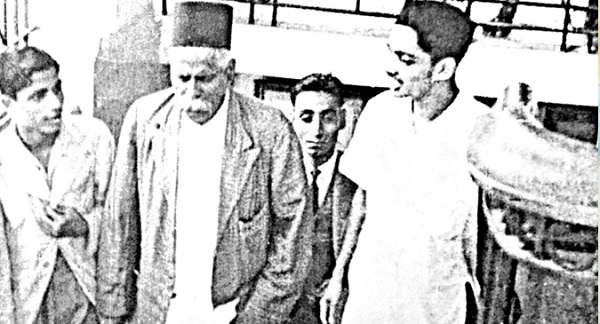
When Netaji Subhash Chnadra Bose went out of Bharat and launched the anti-British armed movement these Communists made a volte face and abused Netaji as ‘agent of Hitler’ and ‘Lapdog of Tojo’. These comrades had actively opposed the freedom uggle during the 1942 ‘Quit India’ movement and passed on the information about many freedom fighters to the British. And now they are here to question the role of the RSS in the independence movement! But for Kerala, Communism is wiped out from Bharat, but these leaders like Sitaram Yechury, D. Raja continue to hurl abuses against the RSS. However, neglecting their negative propaganda, the RSS has grown and continues to grow as a gigantic organization touching almost all the spheres of our national, social and political life. The Late Jayprakash Narayan ‘JP’ once described the RSS as “the most potent and idealistic instrument for total transformation in our country”. What is the secret of growth of the RSS? How did the organization achieve this despite such a mounting malicious and mischievous propaganda unleashed by its opponents? What went into the phenomenal growth and success and admiration for RSS in social, religious, cultural, educational and above all the political spheres of Bharat.
The answer to all these questions can be found in the personality of RSS founder Dr. Keshav Baliram Hedgewar. Born in 1889 on the most auspicious day of ‘Varsh Pratipada’- Bharat’s New Year Day – Dr. Hedgewar was patriotism personified. In 1897 when he was a primary student in the Neil City School of Nagpur, the British government celebrated the 60th Coronation anniversary of Queen Victoria. All the children were given sweets in the school in an atmosphere of festivities. However, Keshav threw these sweets in a corner and when his elder brother asked him why he did so, he replied: “Our Bhonsale dynasty was liquidated by these British people. How can we participate in these imperial celebrations?" It was this instinctive patriotism of Dr. Hedgewar that blossomed and burst forth in all its radiance in his personality that has formed the very bedrock of the RSS. Dr. Hedgewar was in close contact with the revolutionaries of ‘Anusheelan Samiti’ when he went to Kolkatta to pursue his medical education. He believed that armed struggle would be the last resort to achieve freedom.
ALSO READ- Hindutva- identity of Bharat! 'To understand RSS, first observe its service sense', UP CM
His close colleague in those days Ramlal Vajpayee writes in his autobiography: “With the financial help from Dajisaheb Buty, Shri Keshavrao Hedgewar, founder of RSS was sent to Calcutta more with the object receiving training for revolutionary work under the supervision of Sri Pulin Bihari Das, rather than prosecuting higher studies.” The young Keshavrao was introduced to Anusheelan Samiti and soon he became one of its inner circle members. When he returned to Nagpur after completing his medical course, he plunged himself along with his close associates Bhauji Kawre and Appaji Joshi of Wardha into the revolutionary activities in the Central Provinces. But the collapse of the revolutionary plans compelled him to seek alternative recourse in his mission of achieving freedom. He joined the Congress and formed the Nagpur National Union. During the 1921 Congress session at Nagpur where Dr. Hedgewar was in charge of the voluntary force along with his colleague Dr. L V Paranjape. The Nagpur National Union of Dr. Hedgewar submitted a resolution which urged the Congress to declare ‘Complete Independence’ as its sole objective. The resolution said: “It is the aim of the Congress to strive to establish democracy in India and to liberate all nations from the grip of imperialist countries”.
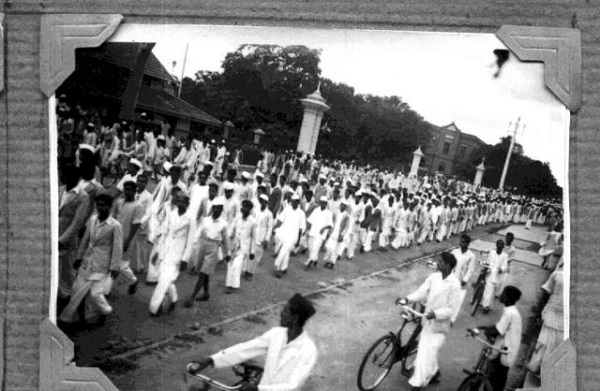
The steering committee which deliberated upon the resolutions did not find this resolution worthy of presenting to the AICC and rejected it. The ‘Modern Review’ of Calcutta in its March 21 issue took cognizance of it and commented: “This resolution merited greater attention in the steering committee”. Dr. Hedgewar along with his followers participated actively in the first non-cooperation movement launched by Mohandas Karamchand Gandhi in 1921. He was arrested and tried for his seditious speeches. The speech he delivered in his defence in the court was described by the presiding British judge as more seditious than his earlier public speeches. He was sentenced to rigorous jail term for participating in this movement. In 1925, Dr. Hedgewar founded the Rashtriya Swayamsevak Sangh (RSS) with some of his friends. The objective of the RSS was to inject the spirit of patriotism, nationalism and to create a strong, vibrant and powerful Hindu society. Liberating the motherland from the British yoke was, of course, his immediate goal of the Sangh then. This was reflected in the oath that used to be administered to the RSS swayamsevaks. But the RSS had a long-term goal and in order to achieve that Dr. Hedgewar put some restrictions to be followed in all circumstances.
M K Gandhi launched the “Dandi March’ on April 6, 1930. This had an electrifying impact on the public psych and the entire nation plunged itself in the freedom struggle. The RSS also did not stay away. By then Dr. Hedgewar was officially crowned as ‘Sarsanghchalak’ of RSS. He volunteered to participate in this ‘Satyagrah’ too. But before taking that step he delegated his authority as ‘Sarsanghchalak’ to Dr. L. V. Paranjape. In the Central Provinces it was decided to break the forest laws. So, a batch of RSS activists under the leadership of Dr. Hedgewar proceeded towards Yavatmal. On the way at Pusad, he gave a public speech and explained his philosophy of freedom. He said: “From polishing the boots of the Englishmen to taking out the same boots and hitting them hard on their heads till they leave this country, all ways are equally logical in my view. I have only one objective and that is to throw the British out of my motherland and free her.”
Dr. Hedgewar participated in the famous ‘Jungle Satyagraha’ and courted arrest. He was sentenced to nine months and incarcerated in Akola Jail along with a number of swayamsevkas. Recently, Rajya Sabha MP Dr. Rakesh Sinha has suggested to the government to erect a memorial in the memory of this Jungle Satyagraha by Dr. Hedgewar. On January 26, 1928, the Congress passed a resolution demanding ‘total independence’ in the AICC session held at Lahore on the banks of the Ravi River. The resolution adopted under the leadership of Pt. Nehru decided to observe January 26, 1930 as ‘Independence Day’ all over the country. This naturally delighted Dr. Hedgewar. During the Nagpur session of the AICC he had demanded for the same. He immediately sent a circular to all the RSS Shakhas to celebrate this day by hoisting the national flag and spreading the message of freedom. The then Central Provinces government issued a circular prohibiting the government employees and servants of the local self-government bodies from participating in RSS activities. Dr. Hedgewar with his communication and convincing skills created a mass public opinion against this move. Editorials were published in ‘Kesri’ of Pune, ‘Maharashtra’ and ‘The Hitavada’ in Nagpur criticizing the government. During the budget session there was a discussion on RSS and surprisingly, the government was defeated on this circular. Members of all political parties including a Muslim member M S Rehman defended the RSS launching frontal attack on the government.
Dr Hedgewar passed away on June 21, 1940 and the stewardship of RSS fell on the shoulders of M S Golwalkar who was popularly known as ‘Sri Guruji’. It was during his tenure that the RSS was face to face with the 1942 ‘Quit India’ movement and the later events that led to the partition of the motherland, the unprecedented violence, the exodus of refugees and overall unrest. Thousands of RSS swayamsevaks sacrificed their lives in saving and sending Hindus to Bharat from those areas that now formed Pakistan. Keeping the line of Dr. Hedgewar in regard to such mass movements, many of the RSS workers plunged into the movement. They set up a parallel government in Chimur-Ashti in Vidarbha; some of them faced the gallows for this rebellion. Some RSS workers damaged the Delhi-Muzaffarnagar railway line, while some others faced bullets in trying to unfurl the tricolor atop the tehsil office in Mewan in Meerut district in UP.
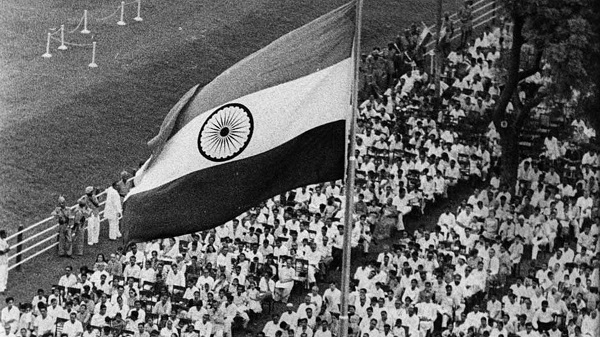
Many stalwarts of the 1942 movement were provided safe shelter by the Sangh swayamsevaks. Aruna Asaf Ali and Jayprakash Narain were housed in Delhi Sanghchalak Lala Hansraj Gupta’s residence. Noted socialist Achyut Patwardhan and Sane Guruji were closeted at the residence of Pne Sanghchalak Bhausaheb Deshmukh. Krantisinh Nana Patil was given shelter by Aundh Sanghchalak Pt. S D Satwalekar. The 1943 intelligence department report which is available in the archives, said about the aim of the RSS in most clear words. “The ulterior objective of the RSS is to drive away the British from India and free the country”, the report mentioned. It is surprising that a foreign power was able to assess and understand the objective of the RSS and the role it played in achieving that goal. But our own government, people failed to do so. Not only that, they used the power at their disposal to crush this nationalist and patriotic movement for their political benefit.
During the UPA rule the leaders of this secular-multi-communal school tried every step to defame the RSS and crush it by raising the bogey of ‘saffron terrorism’ or ‘Hindu terrorism’. They should go through the words of Bharat Ratna Dr. Bhagwan Das, a noted Congressman of the yore. He writes throwing light on the role of RSS swayamsevaks in thwarting the conspiracy of the Muslim League (whose member was a minister in the UPA Government) to annihilate all the senior leaders of the Congress and pushing Bharat into slavery. Dr. Bhagwan Das wrote on October 16, 1948: “I know for sure that RSS volunteers have informed Jawahar Lal Nehru and Sardar Patel well in advance about the plan of Muslim League under which the League had planned for armed rebellion and annihilating the Ministers of the Government of India and the senior officers, unfurl the Pakistani flag atop Lal Quilla and establish their government in India. “Had these patriotic and sincere youths not informed Nehru and Patel in time, the entire country today would have become Pakistan. Lakhs of Hindus would have been butchered and more than that would have become slaves once again. What does it indicate? Clearly, it suggests that our government must utilize the nationalist power of the RSS swayamsevaks instead of subordinating it.”
Ironically, when Dr. Bhagwan Das wrote these words thousands of RSS swayamsevaks including its Sarsanghchalak Sri Guruji were languishing in jails for the crime they never committed – the killing of Gandhi which was never proved in the court of law. Nevertheless, it is being widely and unscrupulously used by these RSS critics to defame it. But, the people have understood the folly in this anti-RSS propaganda of these Communists, Congress, and all its offshoots disguising them as seculars. But they are the real multi-communal, rabidly anti-Hindutva and blatantly selfish. As the saying goes, “you can fool some people for some time, all people for some time but you cannot fool all people all time”. So is what is happening with their anti-RSS propaganda. The attempts of these elements to malign the RSS are getting boomeranged on them as truth always triumphs.
.
.
